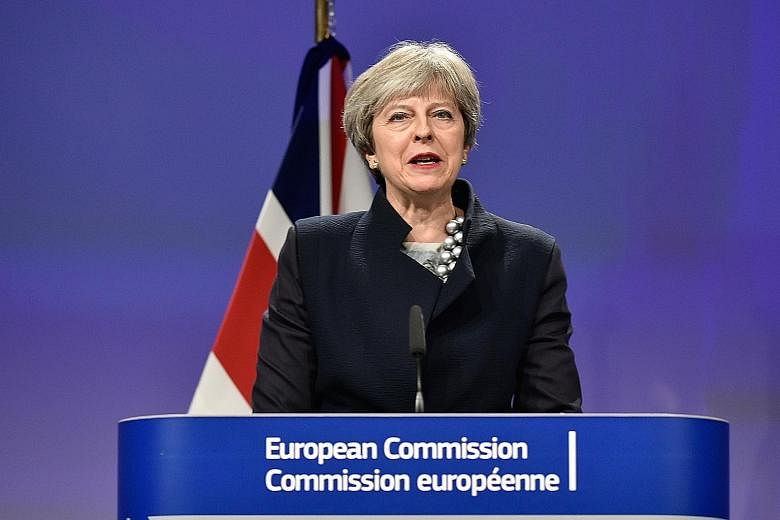Few of Europe's leaders had a worse year. While Britain's Theresa May started the year brimming with ideas for reform of her country, she ends it stumbling from one political row to another, struggling to quash daily media speculation that she is about to be ditched by her own party.
Yet, she has also surprised her critics by displaying a remarkable resilience and determination in negotiating Britain's departure from the European Union. So, continuing to clock up solid achievements on that front may well lift her dismal political fortunes in the coming year.
Mrs May, 61, was never the ruling Conservatives' favourite leader; she became Prime Minister only because of the resignation of Mr David Cameron in the wake of Britain's referendum vote to leave the EU, a result which also deepened the schism within the Conservatives, allowing Mrs May to bypass politicians much better liked than her.
She aimed instead for earning the respect of her peers by providing good governance and greater attention to domestic problems. The reform agenda she initially unveiled was ambitious, a far cry from the policies of previous Conservative leaders. For, unlike them, Mrs May is a passionate believer not only in social equality, but also in the crucial role that the state can play in making it happen.
That was the agenda she promoted when she gambled on calling for new elections in June, a full three years earlier than necessary. Her popularity was rising, the Labour opposition was in the doldrums and a strong mandate from the electorate would have strengthened her position in the EU exit negotiations. Sadly, the gambit backfired; a goofy, accident-prone electoral campaign resulted in the loss of the Conservatives' majority, and Mrs May was forced to form a minority government.
She soldiered on, bravely accepting "full responsibility" for her failure, and often struggling to ignore the taunts of her detractors. She had to make many concessions, both to her unruly backbench MPs and to hostile European leaders. But to everyone's surprise, she is on track to complete Brexit talks within the next nine months as planned.
Paradoxically, her political weakness is her biggest source of strength. The EU separation negotiations are so complex and so fraught with pitfalls that none of her rivals covets her job until the talks are over. The standing of the Conservatives is at a low ebb, so the last thing the party wants is fresh elections. But without new elections, anyone who takes over from Mrs May would encounter the same difficulties of running a minority government.
Chances are high she will keep her job throughout next year. Not because she commands the loyalty of her party or the support of the country, but more because nobody else wants to become Britain's next sacrificial prime minister.
Jonathan Eyal


